
The New Zealand national rugby union team, commonly known as the All Blacks, represents New Zealand in men's international rugby union, which is considered the country's national sport. Famed for their international success, the All Blacks have often been regarded as one of the most successful sports teams in history.

The Australia national rugby union team, nicknamed the Wallabies, is the representative national team in the sport of rugby union for the nation of Australia. The team first played at Sydney in 1899, winning their first test match against the touring British Isles team.

The Fiji national rugby union team represents Fiji in men's international rugby union. Fiji competed in the Pacific Tri-Nations and now competes in its successor tournament Pacific Nations Cup. Fiji also regularly plays test matches during the June and November test windows. They have beaten the major rugby playing sides of Wales, Scotland, Australia, France, Italy, Argentina and England. The only major sides Fiji are yet to beat are New Zealand, South Africa and Ireland.
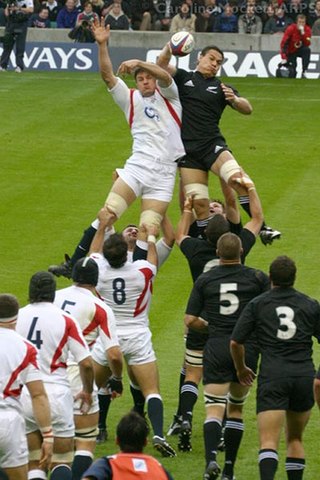
Rugby union has been played in New Zealand since 1870 and is the most popular sport in the country as well as being its national sport.
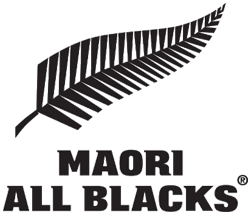
The Māori All Blacks, previously called the New Zealand Maori, New Zealand Maoris and New Zealand Natives, are a rugby union team from New Zealand. They are a representative team of the New Zealand Rugby Union, and a prerequisite for playing is that the player has Māori whakapapa (genealogy). In the past this rule was not strictly applied; non–Māori players who looked Māori were often selected in the team. These included a few Pacific island players and a couple of African descent. Today all players have their ancestry verified before selection in the team.

Billy Stead, born John William Stead, was a rugby union player born in Invercargill who played for New Zealand, the All Blacks, on their 1905–06 tour. Stead also played provincially for Southland, and later coached various teams, including Southland and the New Zealand Māori. A bootmaker by trade, he also co-authored The Complete Rugby Footballer with Dave Gallaher, and was a columnist for the Southland Times, and New Zealand Truth.
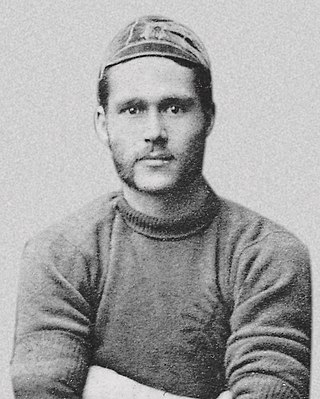
Joseph Astbury Warbrick was a Māori rugby union player who represented New Zealand on their 1884 tour to Australia and later captained the 1888–89 New Zealand Native football team that embarked on a 107-match tour of New Zealand, Australia, and the British Isles.

Vincent David Bevan was a New Zealand rugby union player.
Colin "Col" Windon, was a rugby union player and soldier who captained Australia – the Wallabies – in two Test matches in 1951. By age 18 Windon was playing at flanker for his club Randwick in Sydney's Shute Shield. After serving with the Second Australian Imperial Force in the Pacific Theatre during the Second World War, Windon resumed his rugby career in 1946. He was first selected for Australia for their tour of New Zealand that year. Despite the Wallabies losing both their Tests on tour, Windon impressed with his play.
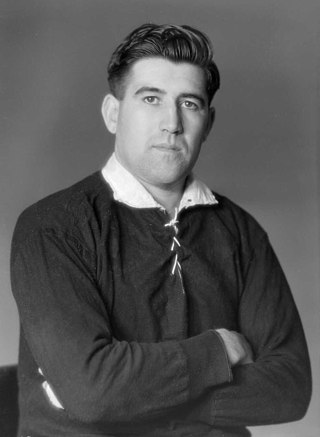
John Burns Smith was a New Zealand rugby union player, soldier, sportsman and baker. He was an All Black captain, and despite only playing nine matches is recognised as a great. His 26 appearances for the Second New Zealand Expeditionary Force rugby team, which toured the UK in 1946–47, earned him high praise. He also played for the New Zealand Māori, being of Ngāpuhi descent.

In rugby union, the Tom French Cup is an honour awarded by New Zealand Rugby Union (NZRU) to the Tom French Memorial Māori player of the year. The cup has been awarded annually since 1949, when it was donated to the New Zealand Māori coach Tom French while the team was on tour in Australia. French had represented Buller provincially, and was selected for New Zealand Maori in 1911. After the First World War, where he lost an arm at Passchendaele, French continued his involvement in rugby by serving as both a selector and administrator. In 1957 he was made a life member of the NZRU.

David Richmond Gage was a New Zealand rugby union footballer. He played with the 1888–89 New Zealand Native football team, and represented New Zealand in 1893, and once in 1896 when he captained the side.

Rugby union has a long history in New Zealand. Today, New Zealand holds tier one status with World Rugby.
Neville Cottrell (1927–2014) was an Australian rugby union footballer. A Queensland and national representative forward, he played fourteen Test matches for Australia, two as captain.
Gregory Victor Davis was a New Zealand born, national representative rugby union player for Australia. He played at flanker and made seven international tours with Wallaby squads. He was the Australian national captain in 47 matches from 1969 to 1972 and led the Wallaby side on three overseas tours.

Peter George Johnson was an Australian international rugby union player. He enjoyed a long state and international career throughout the 1960s and made 92 national appearances for his country. He captained the Australian side in five Test matches.
Geoffrey Arnold Shaw is an Australian former national representative rugby union player who played for and captained the Wallabies. He made state representative appearances for both New South Wales and Queensland over an eleven-year period from 1969.
The History of the South Africa national rugby union team dates back to 1891, when the British Lions first toured South Africa where they played against South African representative sides. The South Africa national rugby union team played few international matches during a period of international sanctions due to apartheid. Since the end of apartheid in 1994, South Africa has once again fully participated in international rugby.
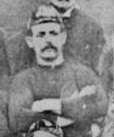
George Albert Williams, also known as Bully Williams, was a New Zealand rugby union player who toured with the 1888–89 New Zealand Native football team to the British Isles and Australia. Williams was one of five non-Māori players in the Natives' side.
Captain Walter "Wattie" Pukauae Barclay,MM, QSM, was a New Zealand rugby union player, sports administrator and military officer. He captained the New Zealand Māori Rugby Team and holds the record for the highest number of tries scored for the team with 40 career tries.














